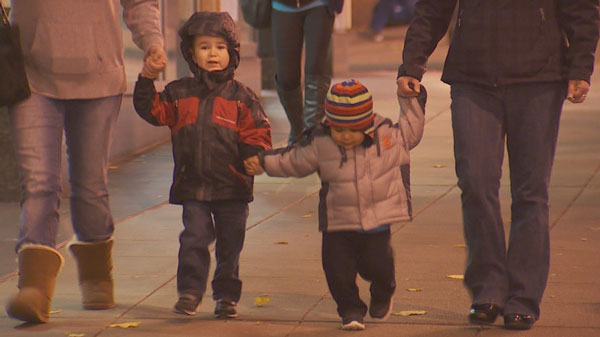December brings freezing temperatures and below to our area, so it s critical to have our children ready for the elements.
Dr. Wendy Sue Swanson, pediatrician at the Everett Clinic and Seattle Mama Doc, gives some advice for parents on being safe this winter.
Let s start with special care for babies
The first thing to think about with babies is how they regulate temperature. They don t cool down as easily as we do and don t tend to warm themselves up well either. The general rule of thumb is that babies should wear one more layer than adults do. If you have a hat and a coat on, a baby will probably need a hat, coat and blanket. If you re going to be out for a while, think about having extra layers around and adjusting as necessary.
Parents also need to be wary of over-bundling. People usually see red cheeks and think their children are really cold, but sometimes kids are actually hot. Even babies can start to sweat, and that water against the skin in a cold environment will put them at a more risk.
Overheating can be dangerous for newborns and is one of the factors contributing to SIDS, so the heat doesn t need to be cranked up at night for them. A really basic reminder is, if it s really cold, just check in on your kids every 10 to 15 minutes.
What are some important things to consider for all children when they re out in the cold, rain or snow?
We may not be at extreme temperatures right now, but it can be below freezing, and parents need to beware of frostbite. Frostbite can happen anytime the skin has the potential to freeze. Ears, nose, feet and hands are at the biggest risk of frostbite, so check in and make sure there is no color change and that kids still have feeling.
The biggest risk for kids is that they don t want to stop playing outside. Keep in mind those layers again, and make sure if they are playing around water that they are really diligent about getting that moisture off their bodies.
Another reminder, we really want kids wearing helmets. Just because its cold out doesn t mean a child should wear a winter hat rather than a bike helmet.
What are some tips for keeping older kids and teens safe?
Teens need fewer reminders about wearing coats and layers, because we don t get sick from just being cold and it always turns into an argument. The bigger risk for teens is driving. Have a driving plan in place in the event of cold weather. Teach your teen how to watch for ice and how to drive in cold weather, and have a plan if they feel at risk.
Also remind them to be extremely cautious around water. Frozen lakes and ponds may not hold the weight of a person.
Lastly, have them wear sunscreen. It doesn t seem necessary when it s this cold out, but the reflection of the sun coming off the ice and snow can put kids at a major risk for sunburn. It s absolutely important, especially if you head up to the mountains.
Winter safety tips from American Academy of Pediatrics
More about Dr. Swanson: Facebook| Twitter:@SeattleMamaDoc | Read her Blog

